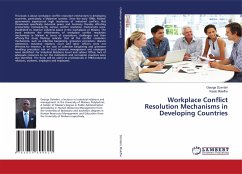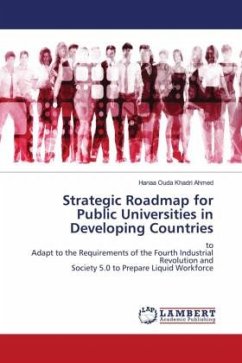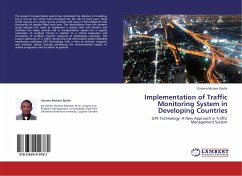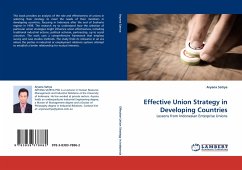
Workplace Conflict Resolution Mechanisms in Developing Countries
Versandkostenfrei!
Versandfertig in 6-10 Tagen
43,99 €
inkl. MwSt.

PAYBACK Punkte
22 °P sammeln!
This book is about workplace conflict resolution mechanisms in developing countries, particularly, a Malawian context. Since the early 1990s, Malawi government experienced high incidences of industrial conflicts that threatened specifically industrial peace and harmony thereby affecting productivity. Consequently, various conflict resolution mechanisms were established to improve industrial peace in the workplaces of Malawi. The book evaluates the effectiveness of workplace conflict resolution mechanisms in Malawi in terms of procedures, challenges and their efficacy.The study findings indicat...
This book is about workplace conflict resolution mechanisms in developing countries, particularly, a Malawian context. Since the early 1990s, Malawi government experienced high incidences of industrial conflicts that threatened specifically industrial peace and harmony thereby affecting productivity. Consequently, various conflict resolution mechanisms were established to improve industrial peace in the workplaces of Malawi. The book evaluates the effectiveness of workplace conflict resolution mechanisms in Malawi in terms of procedures, challenges and their efficacy.The study findings indicate that all the conflict resolution mechanisms, such as collective bargaining, grievance procedure, dispute settlement, Industrial relations court and labor officers were not effective.for instance, in the case of collective bargaining and grievance handling procedure lack of trust between management and employees were identified. For Industrial Relations Court and Labour Office, lack of adequate resources to run the institutions and corruption practices were also identified. The book will be useful to professionals in HRM,Industrial relations, students, employers and employees.












